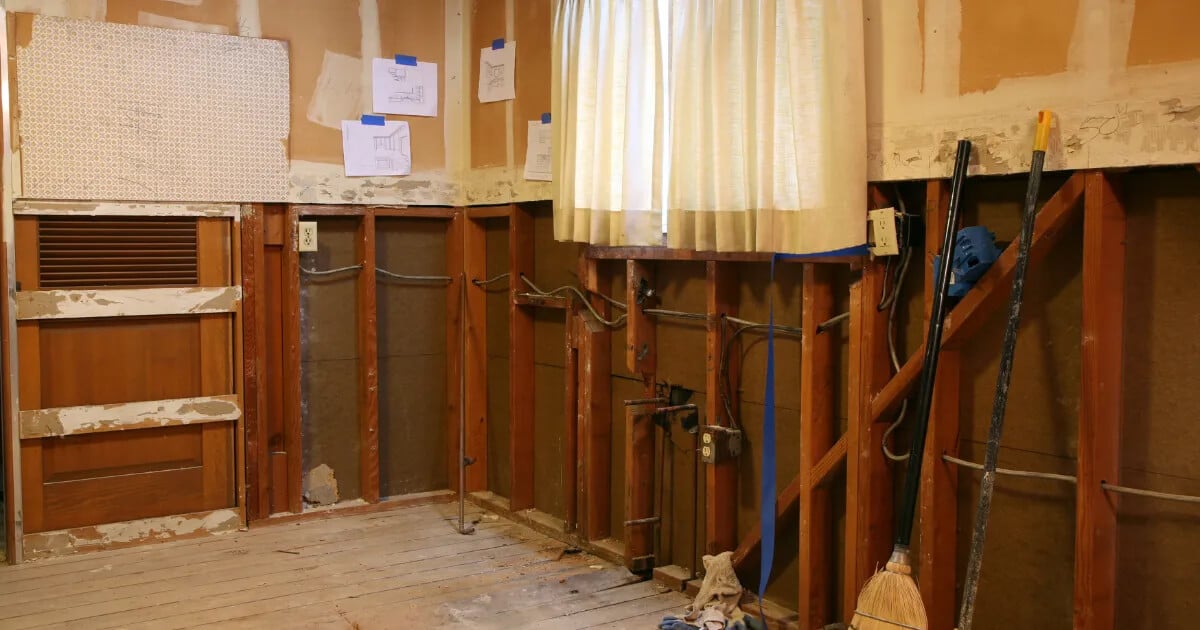During the home sale boom in 2021 6.12 million homes were sold. Even though home sales have slowed, with existing home sales totaling 5.03 million homes in 2022, many markets remain competitive, and housing inventory remains tight.
While many still consider it a sellers market, selling a home can be a complex and emotionally charged process. Homeowners often find themselves weighing the pros and cons of various selling strategies. One approach that has gained popularity in recent years is the as-is property sale.
In this method, homeowners sell their property in its current condition, without making any major repairs or renovations. While this can save sellers time and money, it requires a strategic approach to attract potential buyers.
This blog explores the key considerations and strategies involved in an as-is-home buying process to ensure a successful transaction.
Understanding the As Is Home Sale Concept
The term “as is” essentially means that the home is being sold in its present condition, and the seller is not obligated to make any repairs or improvements. An as is house is priced lower than a comparable move-in ready house.
A purchase agreement for an as is home can be advantageous for both the buyer and the seller. For the seller, for example, it means less hassle and financial burden, while the buyer may want to save money thus be attracted to a lower asking price.
However, for this arrangement to work smoothly, it’s crucial for the seller to be transparent about the condition of the as is property and for the buyer to be fully aware of what they are getting into when buying a house as is.
Transparency is Key in As Is Sales
One of the fundamental aspects of a successful as is home sale is transparency. Sellers must be upfront about any known issues or defects with the property. This can include anything from a leaky roof to outdated plumbing or electrical systems. Providing your agent and potential buyers with a detailed disclosure statement can help build trust and manage expectations. Failure to disclose known issues can lead to legal troubles down the road, making transparency not just good practice but a legal obligation in many jurisdictions.
Setting the Right Price
Determining the right asking price is crucial in any home sale, but it becomes even more significant in an as is transaction. Since the buyer is taking on the property in its current condition, they will likely expect a lower price to account for potential repairs or renovations.
It’s essential for sellers to conduct a thorough assessment of the property’s value in its current state and consult with real estate professionals to arrive at a fair and attractive asking price. Overpricing can deter potential buyers, while underpricing the properties may lead to financial losses for the seller.
Marketing Strategies for As Is Homes
Effectively marketing an as is property requires a different approach compared to traditional home sales. Emphasizing the house as is means the buyer has a lot of potential for customization and personalization can appeal to buyers who are looking for a project.
Highlighting the savings they can make by purchasing a home at a lower price and investing in renovations themselves can be a compelling selling point. Utilizing online platforms and social media to showcase the property’s unique features and potential can also attract a wider audience.
Professional Home Inspection
To alleviate some of the concerns potential buyers may have about the condition of the property, sellers can consider investing in a pre-listing home inspection. This involves hiring a professional inspector to assess the home’s condition and provide a comprehensive report.
While this may reveal issues that the seller was not aware of, it allows them to address critical concerns before listing the property. Providing the inspection report to potential buyers can demonstrate that you sought expert advice which means you are operating with transparency. This can instill confidence in the property’s condition and the risk for the buyer.
Legal Protections for Buyers and Sellers
When buying and selling a house as is, understanding the legal implications is crucial for both buyers and sellers. While the seller is not obligated by law alone to make repairs, they must adhere to all relevant real estate laws and regulations. There should be no hidden issues or major problems that go unmentioned.
Buyers, on the other hand, should be aware of their rights and the limitations of an as is sale. Buyers in as-is sales must exercise due diligence to uncover any issues, as sellers may not be obligated to provide information about the condition of the item being sold. However, legal safeguards exist to prevent fraudulent misrepresentation. If a seller actively conceals or makes false statements about defects, the buyer may have grounds for legal action.
Nevertheless, certain jurisdictions impose restrictions on the extent to which sellers can disclaim warranties in as-is sales. Some states require sellers to disclose known defects even in as-is transactions, and federal laws, such as the Magnuson-Moss Warranty Act, provide additional consumer protection.
While as is sales offer sellers more protection, buyers are not entirely without recourse. In some cases, buyers may still have the option to negotiate necessary repairs or adjustments to the sale price based on inspection findings. Additionally, legal systems strive to strike a balance, ensuring that buyers are not unfairly taken advantage of while respecting the autonomy of sellers in conveying goods or property.
Negotiation Strategies
Negotiation plays a pivotal role in any real estate transaction, and as is home sales are no exception. Sellers should be prepared for buyers to negotiate the price based on the property’s condition. But establishing a fair asking price based on the home’s current condition and market comparables is crucial to avoid overpricing disputes.
Additionally, sellers should be prepared to prioritize non-negotiable terms and be open to compromise on others to ensure the buyer accepts. Offering incentives, such as covering closing costs or including essential appliances, can sweeten the deal without compromising the as-is nature of the transaction.
Buyers, on the other hand, should be realistic in their expectations and focus on negotiating for essential repairs or adjustments rather than seeking a significant reduction in price. Finding a middle ground that satisfies both parties is the key to a successful contract negotiation.
The Role of Real Estate Professional
Engaging the services of experienced real estate agents and mortgage professionals is highly advisable in an as is home sale. In an as is home sale, the role of a real estate agent becomes crucial in navigating the unique challenges associated with marketing and selling a property in its existing condition, without any repairs or improvements.
The real estate agent serves as a guide and expert, helping sellers understand the implications of selling a home in “as is” condition and advising them on pricing strategies that reflect the property’s current state. Their expertise in the local market allows them to set realistic expectations for both sellers and potential buyers.
Conclusion
Selling a home as is can be a viable and efficient option for homeowners looking to streamline the selling process. However, success in an as is home sale requires careful planning, transparency, and strategic decision-making. From setting the right price to effectively marketing the property and navigating negotiations, sellers must be proactive in addressing potential challenges.
By understanding the nuances of the as is home sale concept and leveraging the expertise of real estate professionals, both buyers and sellers can achieve a smooth and successful transaction. Ultimately, the key to attracting buyers in an as is sale lies in transparency, fair pricing, and effective communication throughout the entire purchase process.
Oyler Hines can provide valuable insights into local market conditions, help set an appropriate asking price, and assist with the negotiation process. Call 513-547-2997 or email us at [email protected] today to kick-start your home-buying or selling journey.




